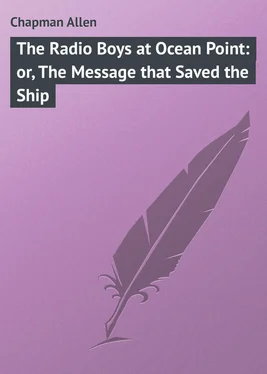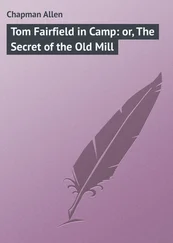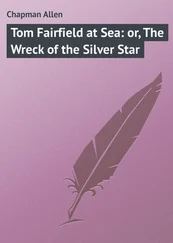Allen Chapman - The Radio Boys at Ocean Point - or, The Message that Saved the Ship
Здесь есть возможность читать онлайн «Allen Chapman - The Radio Boys at Ocean Point - or, The Message that Saved the Ship» — ознакомительный отрывок электронной книги совершенно бесплатно, а после прочтения отрывка купить полную версию. В некоторых случаях можно слушать аудио, скачать через торрент в формате fb2 и присутствует краткое содержание. Жанр: foreign_prose, foreign_children, на английском языке. Описание произведения, (предисловие) а так же отзывы посетителей доступны на портале библиотеки ЛибКат.
- Название:The Radio Boys at Ocean Point: or, The Message that Saved the Ship
- Автор:
- Жанр:
- Год:неизвестен
- ISBN:нет данных
- Рейтинг книги:5 / 5. Голосов: 1
-
Избранное:Добавить в избранное
- Отзывы:
-
Ваша оценка:
- 100
- 1
- 2
- 3
- 4
- 5
The Radio Boys at Ocean Point: or, The Message that Saved the Ship: краткое содержание, описание и аннотация
Предлагаем к чтению аннотацию, описание, краткое содержание или предисловие (зависит от того, что написал сам автор книги «The Radio Boys at Ocean Point: or, The Message that Saved the Ship»). Если вы не нашли необходимую информацию о книге — напишите в комментариях, мы постараемся отыскать её.
The Radio Boys at Ocean Point: or, The Message that Saved the Ship — читать онлайн ознакомительный отрывок
Ниже представлен текст книги, разбитый по страницам. Система сохранения места последней прочитанной страницы, позволяет с удобством читать онлайн бесплатно книгу «The Radio Boys at Ocean Point: or, The Message that Saved the Ship», без необходимости каждый раз заново искать на чём Вы остановились. Поставьте закладку, и сможете в любой момент перейти на страницу, на которой закончили чтение.
Интервал:
Закладка:
“Buck has lots of luck,” commented Jimmy. “Tell me all about it.”
They told him all the details of the meeting, and became so engrossed in it that they almost ran into Dr. Dale, who was just coming up from the railroad station.
He greeted them with great cordiality, which met with quite as hearty a response on their part, for the minister was a prime favorite with them and they always felt at their ease with him. There was nothing prim or professional about him, and his influence among the young people was unbounded.
He chatted with them for a few minutes until they reached Bob’s gate.
“Won’t you come up on the porch for a few minutes, Doctor?” asked Bob. “There are some things we’d like to ask you about radio.”
“Certainly I will,” replied the doctor, with a smile. “There’s not much that I’d rather talk about. In fact, I was just about to tell you of an interesting experience that I had this very afternoon.”
He went with the boys up the steps and dropped into the chair that Bob drew up for him.
“Tell us about that first, Doctor,” urged Bob. “Our questions can come afterward.”
“I just had the luck to get on a train coming home that had a car attached to it where they were trying out a new radio system,” replied the minister. “I heard about it from the conductor, whom I know very well, and he arranged it so that I could go into the car where they were making the experiments. They had a radio set in there with a horn, and the set was connected with an aerial on the roof of the car. They sent out signals to various stations while the train was going along at the rate of forty miles an hour, and got replies that we could hear as plainly as though one of the people in the car were talking to the others. The whole thing was a complete success, and one of the officials of the road who happened to be in the party told me that the express trains on the road were going to be equipped with it.
“Of course, if one road does that, it will not be any time before all the others will, too. It’ll not be long before we can be sitting in a car traveling, let us say from New York to Albany, and chat with a friend who may be on another train traveling between Chicago and Denver. Or if a business man has started from New York to Chicago and happens to remember something important in his office he can call up his manager and give him directions just the same as though he pressed a buzzer and called him in from the next room.”
“It sounds like magic,” remarked Bob, drawing a long breath.
“If we’d even talked about such things a few hundred years ago we’d have been burned at the stake as wizards,” laughed the doctor.
“The most important thing about this railroad development,” he went on, “is not the convenience it may be in social and business life, but in the prevention of accidents. As it is now, after a train leaves a station it can’t get any orders or information until it gets to the next station. A train may be coming toward it head on, or another train ahead of it and going in the same direction may be stalled. Often in the first case orders have come to the station agent to hold a train until another one has passed. But the station agent gets the message just a minute too late, and the train has already left the station and is rushing on to its fate. Then all the agent can do is to shudder and wait for news of the crash. With the radio equipment he can call up the train, tell of the danger, and direct it to come back.
“Or take the second case where a train is stopped by some accident and knows that another train is coming behind it on the same track and is due in a few minutes. All they can do now is to send back a man with a red flag to stop the second train. But it may be foggy or dark, and the engineer of the second train doesn’t see the flags and comes plunging on into the first train. With the radio, the instant a train is halted for any reason, it can send a message to the second train telling just where it is and warning of the danger. Hundreds have been killed and millions of dollars in property have been lost in the past just because of the old conditions. With the radio installed on trains, that sort of thing will be made almost impossible in the future.
“But there,” he said, with a smile, “I came up here to answer your questions, and I’ve been doing all the talking. Now just what is it you wanted to ask me about radio?”
CHAPTER VI – THE WONDERFUL TUBE
“It’s about getting a vacuum tube,” replied Bob, in answer to the doctor’s question. “The crystal detector is all right when we use the ear pieces. But we got to thinking about a horn so that lots of people could enjoy the concerts at the same time, and we figured that the crystal wouldn’t be quite good enough for that.”
The doctor smiled genially.
“I knew you’d be wanting that sooner or later,” he said. “It’s the second natural step in radio development. While you were still getting familiar with the working of the wireless, the crystal would do very well. But there comes a time to all amateurs when they get to hankering after something that is undeniably better. And the vacuum tube is that thing.”
“It seems funny to me that the vacuum tube could have any use in radio,” put in Jimmy. “I never thought of it in any way but as being used for an electric light.”
“Neither did lots of other people,” replied the doctor, smiling. “Even Mr. Edison himself didn’t realize what its possibilities were. He did, though, discover some very curious things about it. In fact, he made the first step that led to its use for radio. He put a plate in one of his lamps. The plate didn’t touch the filament, but formed part of a circuit of its own with a current indicator attached. Then when he turned on the light and the filament began to glow, the needle of the indicator began to twitch. Since the filament and the plate weren’t touching, the movement of the needle indicated that the electricity must have jumped the gap between the two. But this simply showed that an invisible connection was established between the filament and the plate and nothing more came of it at the time.
“Now, it’s likely that even yet we shouldn’t have had that discovery of Edison’s used for the development of radio if it hadn’t been for the new theory of what electricity really is. That theory is that everything is electricity. This chair I’m sitting on, the railing to this porch, the hat that Jimmy is holding in his hand – all that is electricity.”
Jimmy gave a little jump at this, and held his hat rather gingerly at arm’s length and looked at it suspiciously.
The doctor joined in the laugh that followed.
“Oh, you needn’t be afraid that you’ll get a shock,” he said. “Electricity won’t hurt you as long as it’s at rest. It’s only when it gets stirred up that high jinks are apt to follow.”
Jimmy looked relieved.
“Now,” continued the doctor, “the theory is that all matter is composed of an infinite number of electrons. An electron is the smallest thing that can be conceived, smaller even than the atom which used to be thought of as the unit. There may be millions, billions, quadrillions of them in a thing as big as a hickory nut. And when these electrons get busy you can look out for things to happen.
“Every hot object sends out electrons. That’s the reason that the filament in the electric light tube sends them out.”
“I suppose a red-hot stove would send them out, too,” suggested Joe. “If that is so, I should think that people would have found out about them long ago.”
“Ah, but there’s this difference,” explained the doctor. “The red-hot stove does send them out, but the air stops them. Remember that the atoms of which the air is composed are so large that the poor little electrons have no chance against them. It’s like a baby pushing against a giant. It can’t get by.
Читать дальшеИнтервал:
Закладка:
Похожие книги на «The Radio Boys at Ocean Point: or, The Message that Saved the Ship»
Представляем Вашему вниманию похожие книги на «The Radio Boys at Ocean Point: or, The Message that Saved the Ship» списком для выбора. Мы отобрали схожую по названию и смыслу литературу в надежде предоставить читателям больше вариантов отыскать новые, интересные, ещё непрочитанные произведения.
Обсуждение, отзывы о книге «The Radio Boys at Ocean Point: or, The Message that Saved the Ship» и просто собственные мнения читателей. Оставьте ваши комментарии, напишите, что Вы думаете о произведении, его смысле или главных героях. Укажите что конкретно понравилось, а что нет, и почему Вы так считаете.












